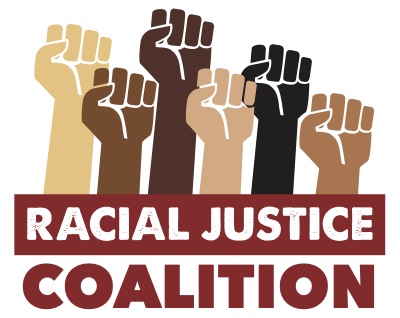The RJC has a way to support our members’ anti-racist activism while combating fatigue and passivity: Solidarity Circles.
“Being a part of a Solidarity Circle is, for me, that connection I need to have a sustainable relationship with racial justice. Feeling connected to my small group helps me stay accountable and also keeps racial equity in focus in this fast-paced culture.” – Jae
What are RJC Solidarity Circles?
The purpose of a Solidarity Circle is to support RJC members in staying engaged and active in anti-racism work through small, intimate groups (generally 4 – 8 people) that support individual and collective accountability through:
- Relationship Building: Consistent meetings with the same group members help build relationships and trust within groups. They can offer a nonjudgmental space to process whatever is coming up for folks so they feel supported and inspired to stay engaged in anti-racism activism.
- Action: Solidarity circle members complete calls to action established in collaboration with RJC, AVL Black Demands, and the overall Black Community, and then report this progress to the RJC community.
- Accountability: Solidarity Circles provide a brave space that serves to create individual and collective accountability to initiating and sustaining community activist work.
Solidarity Circles can form in a number of ways:
- Groups of friends, a pre-existing group you are part of, or people you know
- RJC members who are randomly assigned to a Circle or matched up, e.g., based on interest or identity
- A combination of people who know each other already and those who don’t
Our aim is to continue to build a network of individuals who are actively and steadily engaged in anti-racism work, to influence real policy change that supports Black, Indigenous, and other People of Color (BIPOC) in the community. We believe Solidarity Circles provide opportunities for relationship building, processing of challenges, celebration of victories, and being accountable to one another in brave, supportive ways. This type of mutual support is essential for – perhaps even the essence of – lasting, systemic change.
How to be a part of Solidarity Circles:
If you are interested in being part of a Solidarity Circle or would like more information, please fill out this form.
